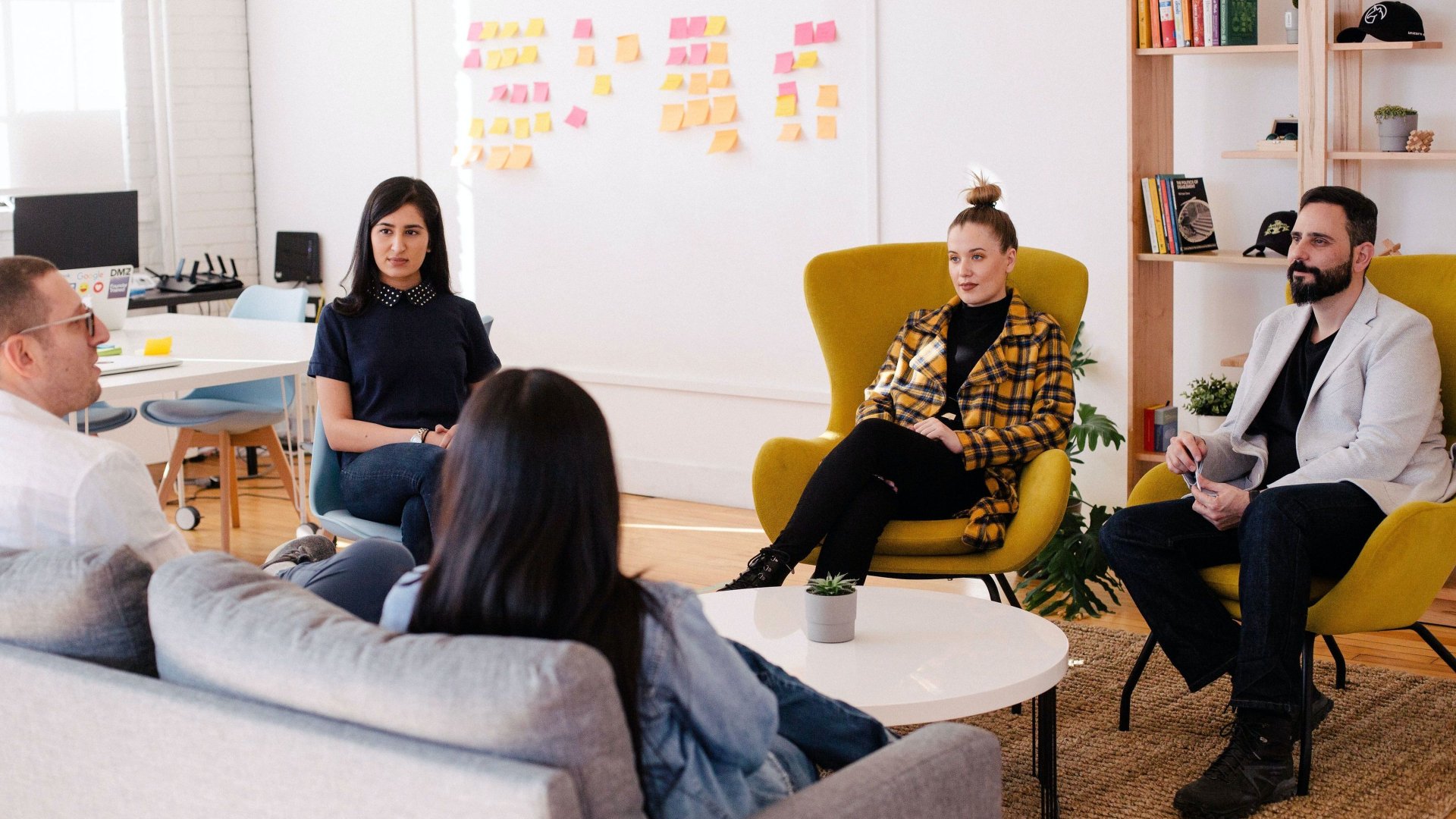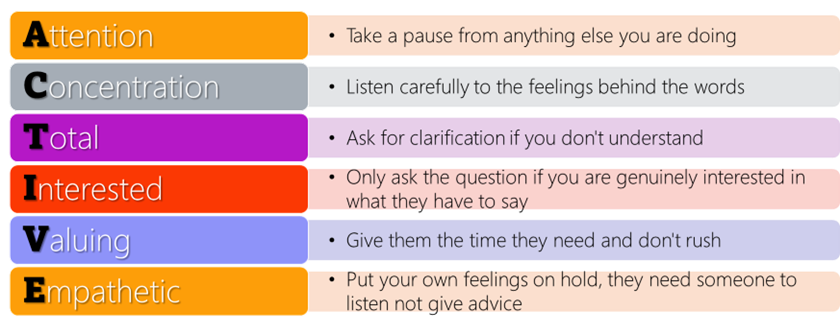One aspect of being an effective communicator is having the ability and skills to listen really well. Many of life’s problems arise from poor communication.
When you choose to improve the quality of your communication skills, you will start to see the results you want, whether that’s to be more productive, efficient, or even profitable. A big step is to learn to listen effectively. Research suggests we spend between 70- 80% of our day engaged in some form of communication. Of that, about 55% of our time is devoted to listening. Most people usually only remember about 17 to 25% of the things they listen to.
Levels of listening
There are many descriptors for levels that we listen at, here are some:
- Passive listening – this is when we are distracted by other things we hear in the background, ignoring what the other is saying
- Pretend listening – also called ‘responsive listening’, using stock nods and smiles and “of course,” but not really listening
- Biased/projective listening – This is ‘selective listening’ hearing only what you want to and dismissing the other person’s views
- Misunderstood listening – When we unconsciously overlay our own interpretations and make things fit when they don’t
- Attentive listening – This is fact gathering and analysis, sometimes with manipulation of the other person, sometimes with a hidden agenda
- Empathic listening – When we understand feelings, gather facts, and ask lots of open questions
- Active listening – This is fully understanding and checking facts and feelings, being truly present and engaged when someone is talking to you, so that you can actively hear what is being said in the conversation. A great active listener hears not only the words that are being said but the underlying story behind the words.
Common mistakes to avoid
Unfortunately to listen completely and with undivided attention is extremely tiring and almost impossible to do at all times, It’s very natural for our minds to wander and to get distracted by our own thoughts and feelings, so we are all guilty of slipping into some poor habits such as:
- Interrupting the other person – is there anything more annoying?
- Preparing what you want to say while they speak – Sometimes known as combative listening
- Not fully paying attention or concentrating – Especially when we are tired or emotional.
- Checking your phone – Just plain rude!
- Assuming you know what the person wants without double checking – You really won’t!
- Stereotyping individuals by their accent or style of speaking – Are you guilty of biases?
- Being defensive – Stop! Wait your turn before speaking and hear the other person out!
Active listening
To actively listen you have to tune into multiple factors: Facial expressions and body language, as well as the actual words you hear so that you can decipher someone’s true message and then, effectively process it. One great way to remember this is in the acronym ACTIVE:
Conclusion
One of the most powerful things you can do for another is to employ active listening, it can make another human feel cared for and connected. When we are really listened to it makes us feel validated, affirmed, valued and more importantly, understood.
As Stephen Covey famously said: “Most people do not listen with the intent to understand; they listen with the intent to reply.”





